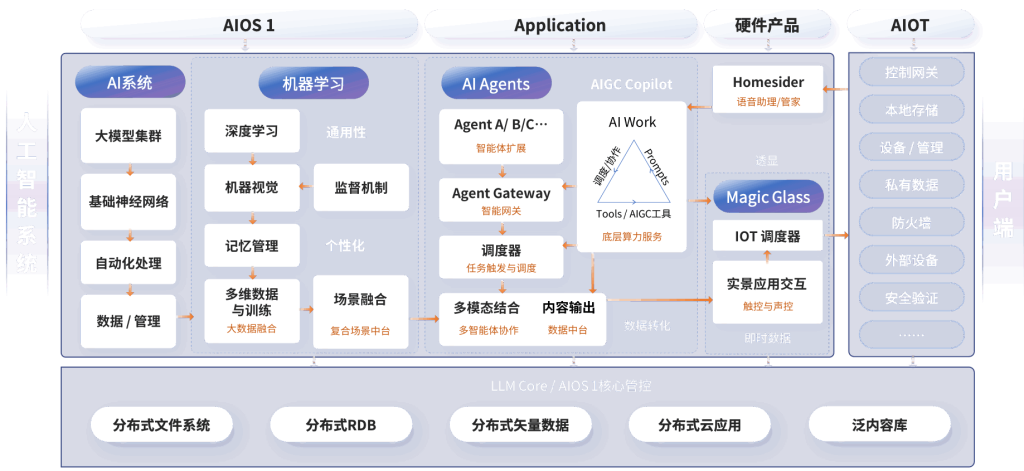The rapid advancement of artificial intelligence (AI) is reshaping numerous industries, enabling businesses to harness the power of automation more effectively than ever before. AI tools for automation are increasingly being incorporated into decision-making processes, streamlining operations, and enhancing productivity. Among the notable frameworks making strides in this space is PaddlePaddle, developed by Baidu, which provides substantial opportunities for organizations looking to adopt AI-driven solutions.
.
**The Rise of AI-based Decision Support Systems**
AI-based decision support systems (DSS) have gained significant traction in various sectors, including healthcare, finance, retail, and manufacturing. These systems utilize machine learning algorithms to analyze complex data sets, helping businesses make informed decisions and reduce human error. Unlike traditional decision-making frameworks that rely heavily on human expertise, AI tools for automation enable real-time analysis of vast amounts of data and provide recommendations based on predictive analytics.
.
In healthcare, for instance, AI-based decision support systems can assist physicians in diagnosing disease conditions by analyzing patient history, symptoms, and lab results. A study published in Nature found that AI algorithms can outperform human experts in diagnosing certain diseases, showcasing the potential of AI in improving patient outcomes.
.
Similarly, in the finance sector, AI-driven tools can analyze trading patterns, assess credit risks, and enhance fraud detection mechanisms, leading to more efficient financial operations. This shift toward AI-based decision-making not only speeds up processes but also ensures more accurate results.
.
**PaddlePaddle: An Overview**
PaddlePaddle, short for “PArallel Distributed Deep LEarning,” is an open-source deep-learning platform developed by Baidu. It was designed to simplify the implementation of deep learning models, making it easier for developers and businesses to adopt AI technologies. PaddlePaddle is particularly beneficial for enterprises looking to leverage AI tools for automation and decision support systems.
.
One of the significant advantages of PaddlePaddle is its user-friendly interface and extensive documentation. Unlike some other AI frameworks, PaddlePaddle is designed to be accessible to users with varying levels of expertise. This inclusivity enables organizations to foster innovation and experimentation with AI without the steep learning curve typically associated with deep learning technologies.
.
**Key Features of PaddlePaddle**
PaddlePaddle boasts several features that make it a preferred choice among developers and data scientists:
1. **Model Flexibility:** PaddlePaddle supports a wide range of model types, from convolutional neural networks (CNNs) to recurrent neural networks (RNNs), providing users with the flexibility to choose suitable architectures for their specific use cases.
2. **Powerful Optimization Algorithms:** The framework offers advanced optimization algorithms, which enhance model training efficiency. This allows businesses to achieve better performance and reduce overall training time.
3. **Integrated Tools for Experimentation:** PaddlePaddle includes a suite of built-in tools for hyperparameter tuning, model evaluation, and visualization, streamlining the model development process.
4. **Robust Ecosystem:** PaddlePaddle is part of a broader ecosystem that includes numerous pre-trained models and a community that actively contributes to its growth. This community-driven approach fosters collaboration and innovation.
.
**Industry Applications of PaddlePaddle**
PaddlePaddle is making waves across various industries by enabling organizations to effectively deploy AI tools for automation. Here are some notable applications:
– **Healthcare:** As mentioned earlier, PaddlePaddle helps researchers and healthcare providers develop AI models that assist with disease diagnosis, personalized treatment plans, and drug discovery. For example, Chinese healthcare companies have leveraged PaddlePaddle to create AI algorithms that analyze medical imaging data for more accurate diagnoses.
– **E-commerce:** In the retail sector, PaddlePaddle facilitates personalized shopping experiences by analyzing consumer behavior and preferences. AI algorithms can recommend products based on previous purchases, boosting sales and enhancing customer satisfaction.
– **Automotive:** PaddlePaddle is increasingly being used in the development of AI algorithms for autonomous vehicles, where it supports tasks such as object detection and semantic segmentation. Baidu itself has invested heavily in this area, striving to lead the charge in self-driving technology.
– **Manufacturing:** AI tools for automation are enabling manufacturers to optimize production lines, improve quality control, and predict maintenance needs using data analytics. PaddlePaddle’s capabilities allow for the real-time analysis of operational data, significantly enhancing the efficiency of productions.
.
**Trends Analysis: The Future of AI Automation**
The continued advancement of AI tools for automation suggests several key trends that businesses should be aware of:
1. **Increased Integration Across Systems:** Organizations are likely to integrate AI decision support systems into existing business processes and operations, making automation a standard part of their strategy.
2. **Focus on Ethics and Transparency:** As AI adoption grows, concerns regarding ethics and transparency in AI systems will also rise. Companies will need to establish governance frameworks to ensure responsible use of AI technologies.
3. **Continued Investment in Talent Development:** To fully realize the potential of AI, organizations will need to invest in training and developing talent skilled in data science, machine learning, and AI technologies.
4. **Collaboration Across Industries:** The potential of AI tools for automation is vast, encouraging collaboration between tech companies, startups, and traditional industries to develop innovative solutions.
.
**Solutions Overview: Overcoming Challenges in AI Adoption**
While the potential benefits of AI tools for automation and decision support systems are substantial, organizations often face challenges during implementation. These obstacles can include a lack of technical expertise, data quality issues, and resistance to change within established workflows.
To overcome these challenges, organizations can consider the following solutions:
1. **Invest in Training and Development:** Investing in upskilling employees in data science and AI technologies can help bridge the knowledge gap and foster a culture of innovation.
2. **Data Governance Frameworks:** Establishing clear data governance protocols can enhance data quality and ensure compliance with regulations, which is critical for successful AI implementation.
3. **Pilot Programs:** Before a full rollout, organizations can initiate pilot projects with AI tools, allowing them to test new processes, gather insights, and build confidence among stakeholders.
4. **Collaboration with AI Vendors:** Partnering with established AI vendors or consulting firms can help organizations navigate the complexities of AI adoption effectively.
.
**Conclusion**
The integration of AI tools for automation and AI-based decision support systems is not just a trend but a pivotal transformation driving industries forward. With frameworks like PaddlePaddle spearheading this change, organizations are better equipped to harness the power of AI, leading to improved efficiency, accuracy, and overall outcomes. Embracing these tools and tackling the accompanying challenges will help businesses stay competitive in an ever-evolving landscape. As the future unfolds, the potential for AI to revolutionize various sectors will continue to grow, presenting exciting opportunities for innovation and advancement.
.
**Sources:**
1. Yang, G., et al. “Deep Learning in Healthcare: A Review.” *Nature Reviews*.
2. Baidu. “PaddlePaddle: A Platform for Deep Learning”. Baidu Official Website.
3. McKinsey & Company. “The State of AI in 2023”.
4. Chui, M., et al. “AI’s Future Impact on Business”. *McKinsey Quarterly*.





















